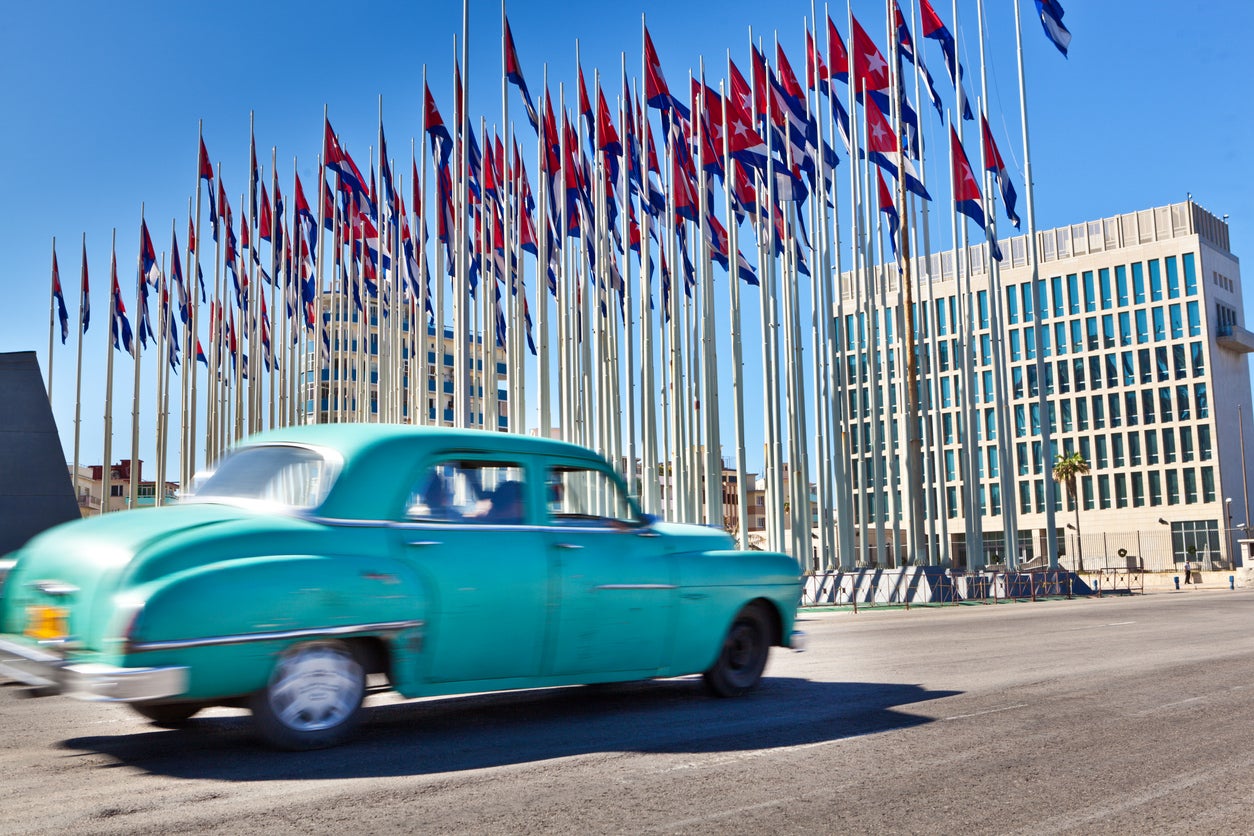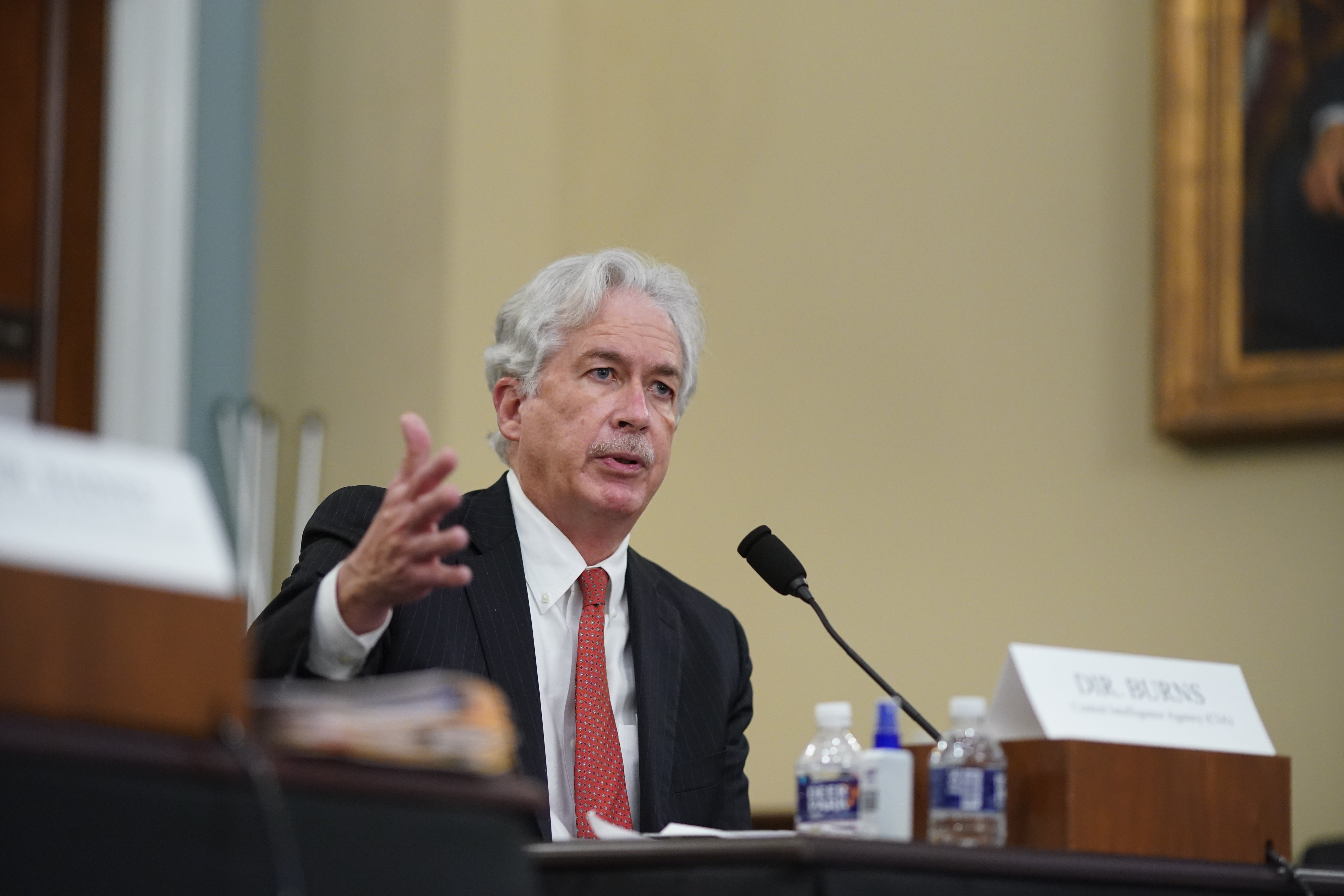CIA rules out ‘worldwide campaign’ in mysterious Havana Syndrome attacks
‘While we have reached some significant interim findings, we are not done,’ says CIA Director William Burns

Your support helps us to tell the story
From reproductive rights to climate change to Big Tech, The Independent is on the ground when the story is developing. Whether it's investigating the financials of Elon Musk's pro-Trump PAC or producing our latest documentary, 'The A Word', which shines a light on the American women fighting for reproductive rights, we know how important it is to parse out the facts from the messaging.
At such a critical moment in US history, we need reporters on the ground. Your donation allows us to keep sending journalists to speak to both sides of the story.
The Independent is trusted by Americans across the entire political spectrum. And unlike many other quality news outlets, we choose not to lock Americans out of our reporting and analysis with paywalls. We believe quality journalism should be available to everyone, paid for by those who can afford it.
Your support makes all the difference.The Central Intelligence Agency believes it is unlikely that a hostile foreign country is behind a spate of mystery illnesses suffered by US officials known as the “Havana Syndrome”.
The agency has found no evidence of a “sustained worldwide campaign”, despite previously suspecting Russia of being behind the attacks, in interim findings presented to President Joe Biden and Congress in recent weeks.
“We assess it is unlikely that a foreign actor, including Russia, is conducting a sustained, worldwide campaign harming US personnel with a weapon or mechanism,” a senior CIA official told the Washington Post under condition of anonymity.
More than 1,000 diplomats, spies and officials have been struck down by debilitating physical injuries, including loss of hearing, dizziness and long-term brain damage, since the first cases were reported by US Embassy staff in Cuba in 2016.
The interim report marks the first time a CIA task force set up in to investigate the “anomalous health incidents” has presented its findings to political leaders.
Pressure had grown on the White House to take the illnesses seriously after several diplomats were forced into early retirement suffering traumatic brain injures.
Cases were initially reported at embassies in overseas embassies and safe houses in Russia, Austria and India. But more recently, officials have reportedly been targeted on US soil, including two incidents near the White House.
In October, Mr Biden signed the Havana Act into law to provide increased medical support.
In a statement, CIA Director William Burns said the agency’s commitment to its officers’ health was “unwavering”.
“While we have reached some significant interim findings, we are not done,” Mr Burns said.
“We will continue the mission to investigate these incidents and provide access to world-class care for those who need it.”

A senior CIA official stressed the findings to not cast doubt on the legitimacy of the illnesses.
“This finding does not... call into question the fact that our officers are reporting real experiences and are suffering real symptoms, nor does it explain every report,” the official told CNN.
Many of the illnesses attributed to Havana Syndrome had been found to be caused by previously undiagnosed conditions, the official said.
But an unknown number remained unexplained, and the CIA is focussing on about two dozen cases to investigate further.
“We’re cutting the data in a dozen different directions and we’re just not seeing those patterns at this stage that are allowing us to make broader conclusions about attribution,” the CIA official said.
Mark Zaid, a Washington lawyer representing intelligence officers who have reported cases, asserted that the CIA is having a “revolt within its workforce” among people who do not want to take overseas assignments for fear of being attacked.
He tweeted that the interim report was “disinformation”, and that other agencies who disagreed with the findings were “furious” over a lack of coordination.
Agencies contributed to this report



Join our commenting forum
Join thought-provoking conversations, follow other Independent readers and see their replies
Comments